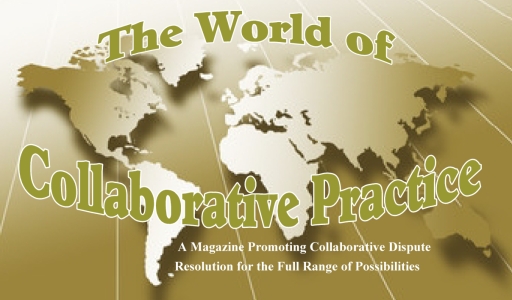Ms. Gladel gives an overview of the history of Collaborative Practice in France, from its origins in the work of two Harvard Law professors to the application in the French system. She notes that the traditional system can be fraught with delays that ultimately violate the petitioners human rights and that the Collaborative method is growing because of its ability to work with the parties more efficiently without the restrictions of the court docket. The goals, advantages and processes are clearly defined and illustrated with charts and diagrams for clarity. Collaborative is also compared to other ADR methods to demonstrate the...
GOING HOME – 3 of 3: ROOTS
posted by admin
Our roots give context to the work we do as Collaborative practitioners. Our ability to work in teams, to assist our clients, and to grow as professionals is in large part influenced by our roots. This is the third installment of a three-part report of my recent visit to my hometown of Omaha, NE. The first installment, Going Home: The Little Things, discussed the little things essential to quality Collaborative Practice. The second installment, Going Home: Inter-Practice Group Relations, focused on what can be learned from relations “between” practice groups and that it can be missed if our focus is entirely on the work we do “within”...
RESISTANCE TO RESILIENCE: USING APOLOGY TO UNLOCK ...
posted by admin
A properly formulated apology can both provide consolation and restore integrity between clients in dispute resolution. Facilitators can encourage apologies to clear the air, relieve stress and create an atmosphere of improved communication to achieve settlement. In addition to these substantial process benefits, an apology has the potential to transform the participants through neurological changes which impact the attitude of everyone at the table. The facilitator, in collaboration or mediation, has an opportunity to address barriers to communication by recognizing that particular incidents or events may be at the heart of conflict and...
GOING HOME – 2 of 3: INTER-PRACTICE GROUP RE...
posted by admin
What makes for effective Collaborative Practice? The author shares thoughts gleaned from a personal journey. [part 1 is here] Good Practice Group health is essential to the health of Collaborative Practice as a whole. Most of the energy that we put into our practice group work involves intra-Practice Group relations. “Intra” denotes “inside” or “internal”. Intra-Practice Group relations describes everything we do individually within each of our practice groups, from attending meetings, studying Collaborative literature, attending trainings, networking, public speaking, making presentations, and developing relationships with other...
GOING HOME – 1 of 3: IT TAKES THE LITTLE THI...
posted by admin
What makes for effective Collaborative Practice? The author shares thoughts gleaned from a personal journey. Prelude: I recently travelled to the place I was born, Omaha, NE, to visit my father, to attend my 35th High School Reunion, and to meet with members of the Collaborative Practice Nebraska practice group to learn about the state of Collaborative Practice in my hometown. Going Home. This trip proved to be fertile ground indeed, so much so that I have organized my thoughts into three parts. This one is about doing the little things. I had a chance encounter in Omaha with a young woman named Deb, the receptionist for Kelle Westland,...
Collaborative Practice. Not part of the ‘adv...
posted by admin
The OCFLA[1] was originally conceived in 2007, by members of a Collaborative Law sub-committee of a Supreme Court Advisory Committee on Alternative Dispute Resolution for Children and Families. Five (5) years later, the 129th General Assembly passed the Ohio Collaborative Family Law Act (OCFLA), effective on March 22, 2013.[2] In so doing, the legislature provided Ohio families with a common sense approach to avoiding antagonistic and costly divorce litigation. The legislature saw fit to codify what is commonly known as Collaborative Practice[3] and added this contractually-based, voluntary method for solving family law issues, to...








Connect With Us!